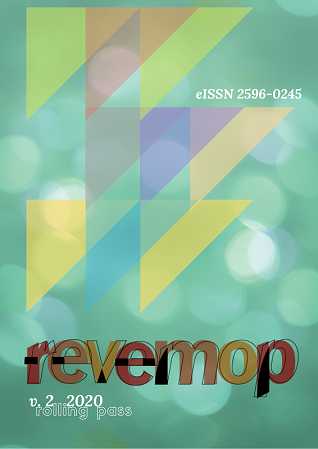Etnomatemática: passado e futuro
Resumo
Cada cultura, desde a era paleolítica, desenvolve formas estilos e técnicas de fazer, e responder à busca de explicações, de compreensão e de aprendizagem. Buscam responder, basicamente, o "como" e o "por que". Na espécie humana, as primeiras tentativas de explicar e compreender conduziram à busca das origens, o que leva aos mitos. Tudo isso é organizado como sistemas de conhecimento e religiões. Esses sistemas de conhecimento levam ao conceito de Etnomatemática. Após um relato sobre a prática da Etnomatemática e a evolução das reflexões teóricas desde os tempos pré-históricos até o presente, discutirei algumas novas tendências que reconheço na teoria e na prática da Etnomatemática. No presente artigo, vou me referir aos diferentes ambientes culturais e às consequências da crescente dinâmica migratória em todo o mundo. O movimento em direção à globalização e à internacionalização da educação favorece o reforço de considerações locais. A glocalização tem consequências para o futuro da Etnomatemática como um programa de pesquisa com implicações pedagógicas.
Downloads
Referências
AKIZUKI, YASUO. Proposal to I.C.M.I. L’Enseignement Mathématique, Genebra, v. 5, n. 4, p. 288-289, 1959.
CASTAÑEDA, Nuria. Apprenticeship in early Neolithic societies. Current Anthropology, Chicago, v. 59, n. 6, p. 716-740, dec. 2018.
D’AMBROSIO, Ubiratan. A historiographical proposal for non-western mathematics. In: SELIN, Helaine (Ed.). Mathematics across cultures: the history of non-western mathematics. Dordrecht, The Netherlands: Kluwer Academic Publisher, 2000, p. 79-92.
D'AMBROSIO, Ubiratan. Adapting the structure of education to the needs of developing countries (letter). Impact of Science on Society, v. 25, n. 1, p. 94-95, 1975.
D'AMBROSIO, Ubiratan. Knowledge transfer and the universities: a policy dilemma. Impact of Science on Society, v. 29, n. 3, p. 223-229, 1979.
DORN, Harold. The geography of science. Baltimore: The Johns Hopkins University Press, 1991.
LEPPARD, Thomas P. Social complexity and social inequality in the prehistoric Mediterranean. Current Anthropology, Chicago, v. 60, n. 3, p. 283-308, jun. 2019.
LLOYD, Geoffrey Ernest Richard. Disciplines in the making: cross-cultural perspectives on elites, learning, and Innovation. New York: Oxford University Press, 2009.
MAYOR, Federico. Opening speech. CONFERENCE ON SCIENTIFIC AND TECHNOLOGICAL COOPERATION IN AFRICA. Nairobi, Kenya, 1994.
RAUSSEN, MARTIN; SKAU, CHRISTIAN. Interview with Mikhail Gromov. Notices of the AMS, Providence, v. 57, n. 3, p. 391-409, mar. 2010.
SAMUEL, Pierre. Mathématiques, Latin et sélection des élites. In: GROTHENDIECK, Alexandre (Ed.). Pourquoi la Mathématique? Paris: Union Générale d'Éditions, 1974, p.147-171.
WELLS, George H. The Country of the Blind. The Stand Magazine. Westminster: George Newnes, 1904.






























